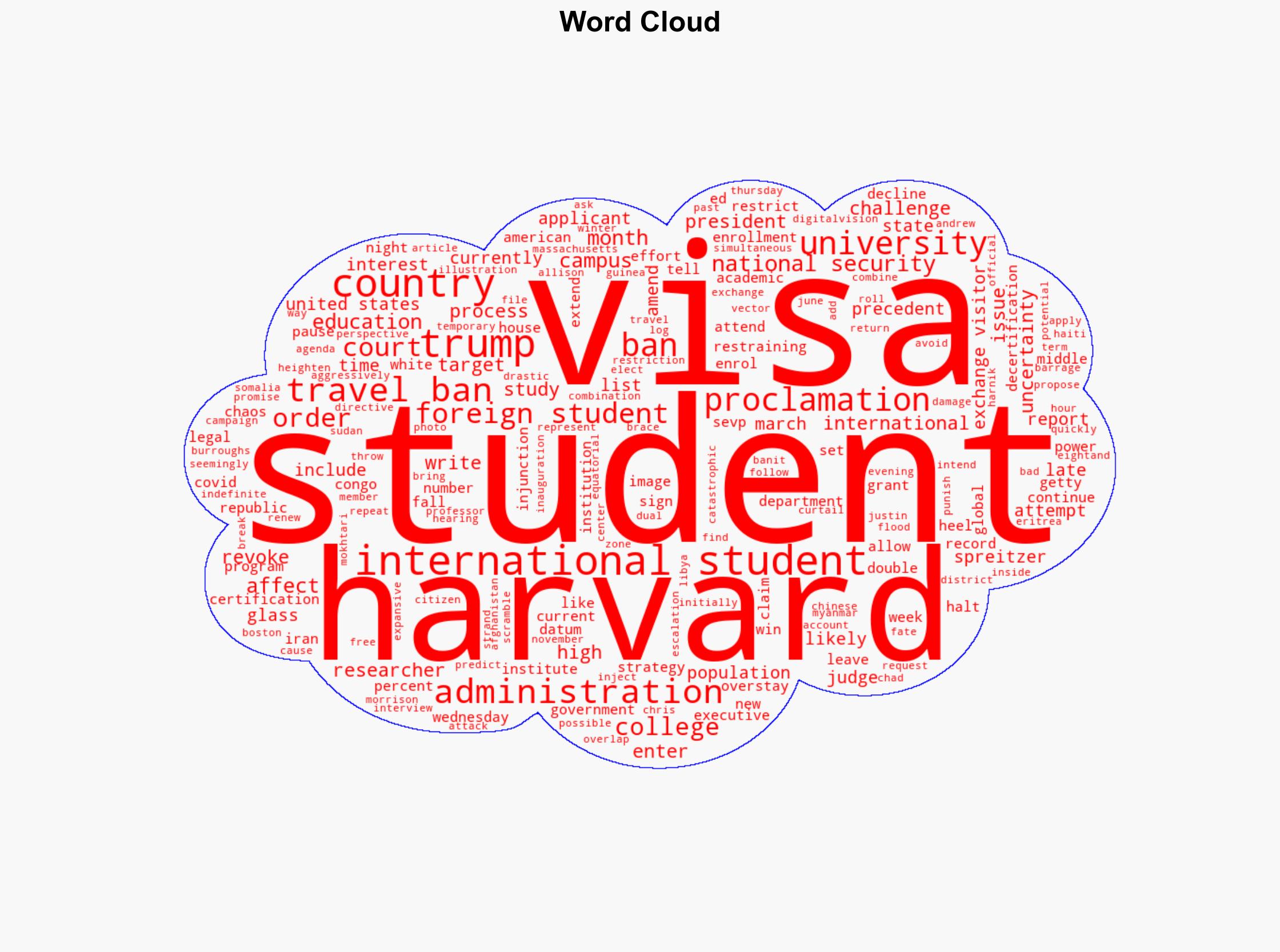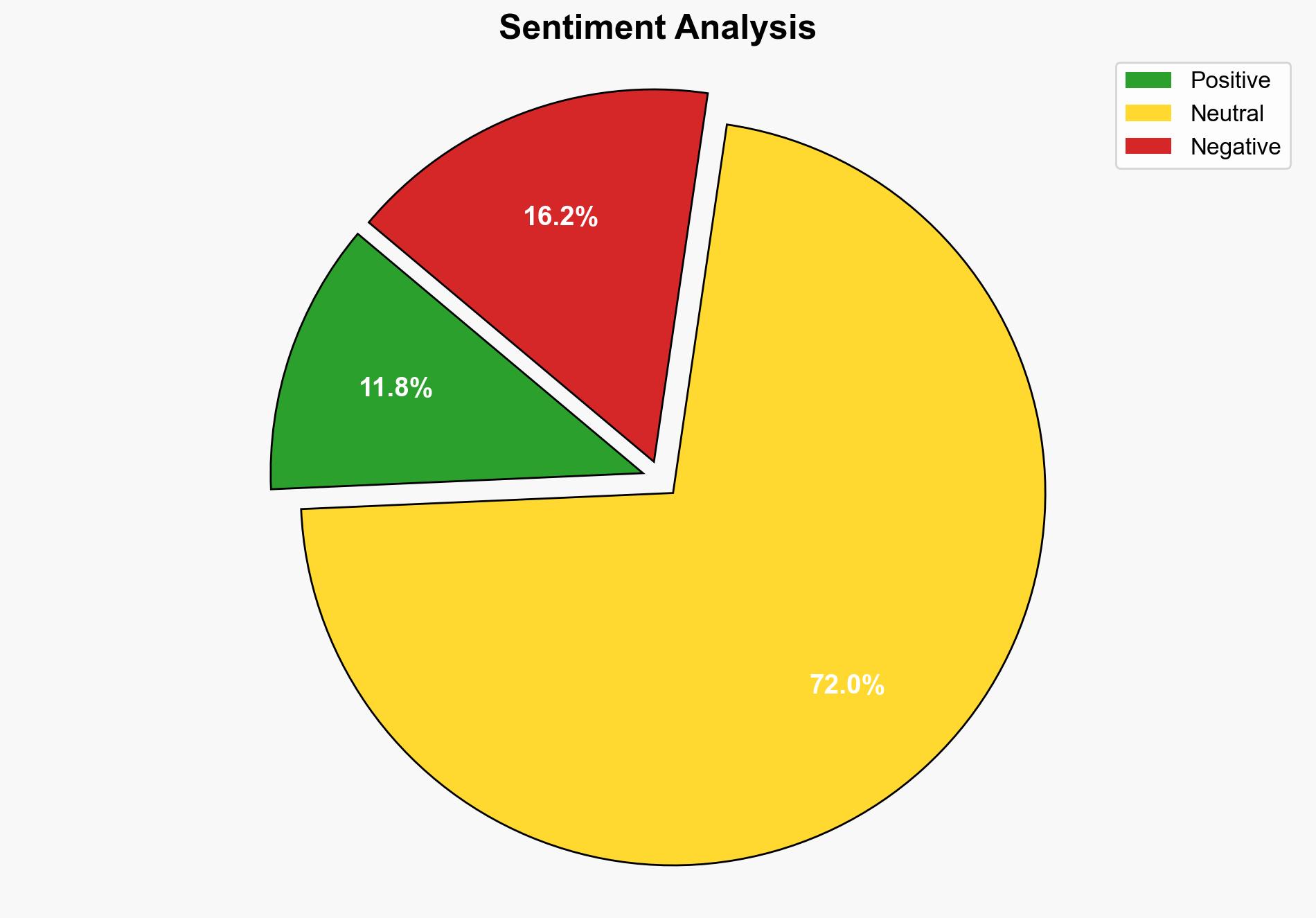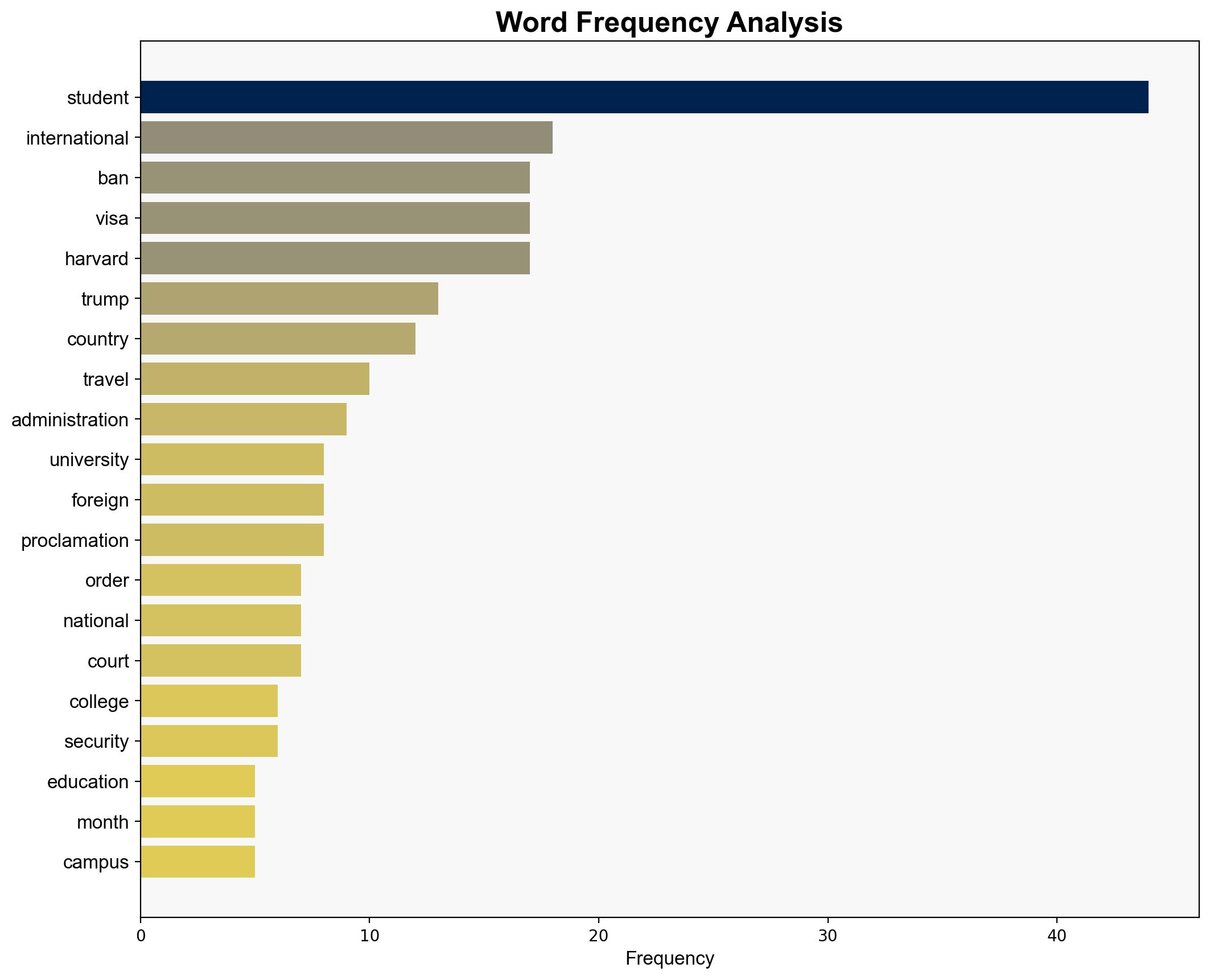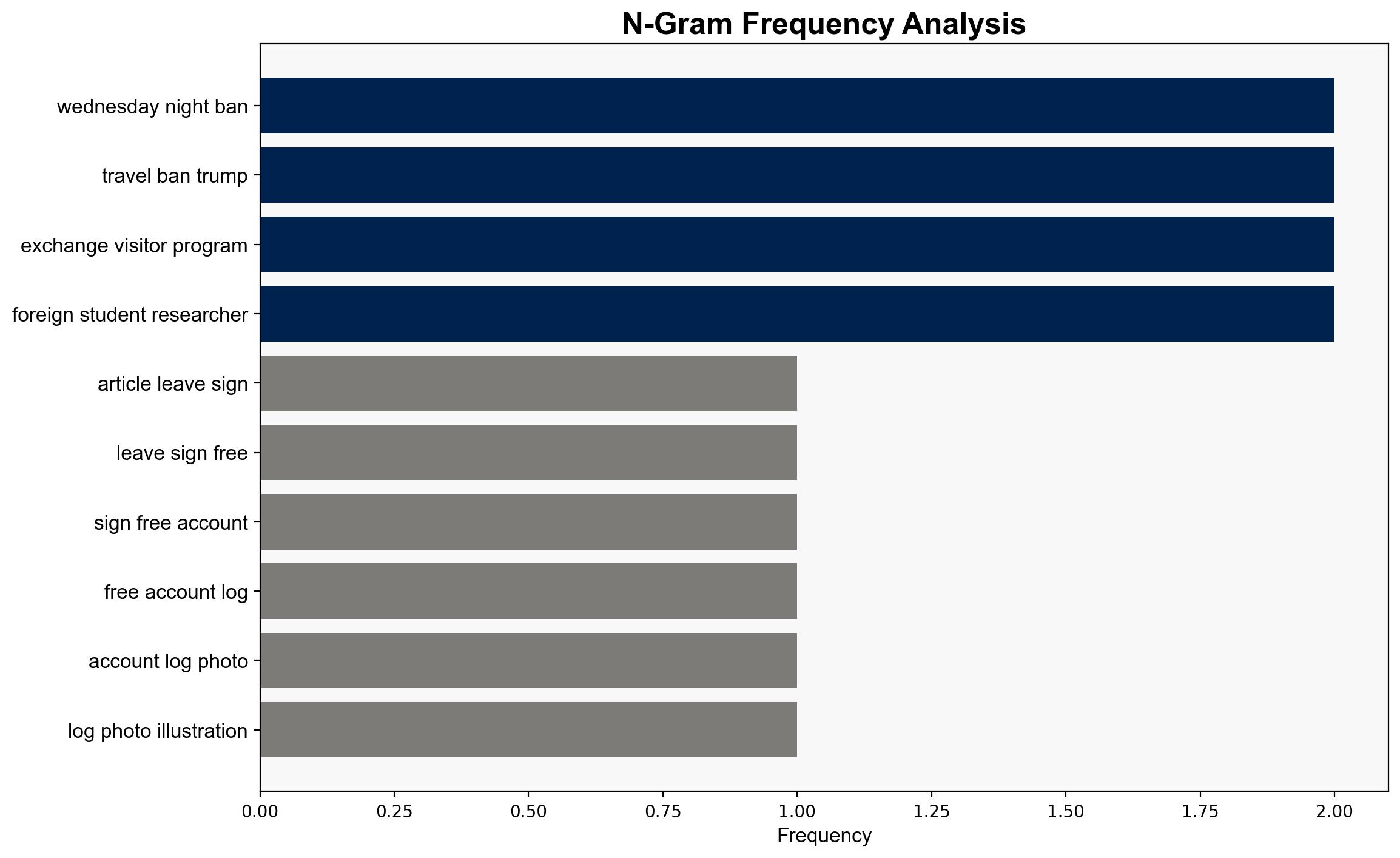International Students Hit With Back-to-Back Orders – Inside Higher Ed
Published on: 2025-06-06
Intelligence Report: International Students Hit With Back-to-Back Orders – Inside Higher Ed
1. BLUF (Bottom Line Up Front)
The recent directives targeting international students, particularly those from specific countries, represent a significant escalation in U.S. immigration policy. These measures could severely impact international student enrollment, disrupt academic institutions, and strain diplomatic relations. It is crucial to anticipate potential retaliatory actions from affected nations and prepare for a possible decline in educational sector revenues.
2. Detailed Analysis
The following structured analytic techniques have been applied to ensure methodological consistency:
Causal Layered Analysis (CLA)
At the surface level, the directives are a continuation of restrictive immigration policies. Systemically, they reflect a broader strategy to control foreign influence in U.S. academia. The worldview underpinning these actions is one of national security prioritization over international collaboration. The myth driving this is the perception of foreign students as potential threats rather than contributors.
Cross-Impact Simulation
The ripple effects of these policies could include strained U.S.-foreign relations, particularly with countries like Iran and China. Economic dependencies on international student tuition may lead to financial shortfalls for U.S. institutions, potentially affecting local economies reliant on these institutions.
Scenario Generation
– Best Case: Legal challenges succeed, and policies are reversed, stabilizing international student enrollment.
– Worst Case: Policies are upheld, leading to a significant decline in international student numbers and increased diplomatic tensions.
– Most Likely: A moderate decline in enrollment with ongoing legal and diplomatic disputes.
3. Implications and Strategic Risks
The directives may lead to a reduction in the diversity and talent pool within U.S. academic institutions, impacting innovation and research. There is a risk of retaliatory measures from affected countries, potentially impacting U.S. citizens abroad. Additionally, the economic impact on universities could lead to budget cuts and program reductions.
4. Recommendations and Outlook
- Encourage diplomatic engagement with affected countries to mitigate tensions.
- Support legal challenges to the directives to maintain international student enrollment levels.
- Develop contingency plans for universities to manage potential financial shortfalls.
- Monitor the situation closely to adapt strategies as new developments occur.
5. Key Individuals and Entities
– Donald Trump
– Chris Glass
– Harvard University
6. Thematic Tags
national security threats, immigration policy, international education, diplomatic relations





